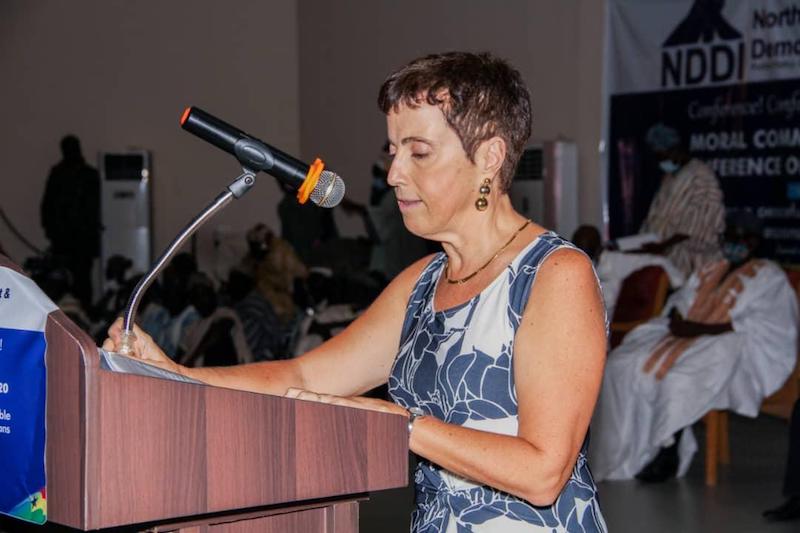
Mrs. Diana Acconcia -Ambassador of the European Union to Ghana
The head of the European Union (EU) Delegation to Ghana, Diana Acconcia, says the European body remains committed to vaccine sharing with poorer countries.
Clarifying issues the EU has with some vaccine producers and richer countries, Mrs. Acconcia said the posturing at that level would not affect commitment to countries like Ghana.
The EU currently isn’t engaged in direct vaccine sharing but has provided 2.2 billion Euros in support of the COVAX vaccine sharing programme.
On February 24th, Ghana was the first country to receive vaccines through this mechanism.
“It was clear from the beginning that the EU would support a vaccine sharing mechanism and since the EU supports multilateralism, we decided to go via COVAX,” Mrs. Acconcia said on the Citi Breakfast Show on March 25, 2021.
“For now the idea has been that it is better to pool resources in a multilateral body like COVAX than give donations disorderly,” she added.
On the issues that led to a vaccine shipment being blocked, Mrs. Acconcia explained that it was a matter of accountability.
“We want to make sure when the doses leave to where they are going, we know if they should have been part of the consignment for the European Union.”
Moving forward, she said the EU was exploring the possibility of its own direct vaccine sharing mechanism.
“Later in the year, there will be more doses that will be [available] and that will be the moment we will also be able to share directly with our partners.”
Currently, beneficiaries of COVAX have been warned to expect delays in the delivery of COVID-19 vaccines after UNICEF highlighted technical problems at a South Korean manufacturing plant and setbacks in securing export licences from the Indian government.
Up to 90 million doses of the AstraZeneca vaccine may be affected by the two issues.
Source: citinewsroom























